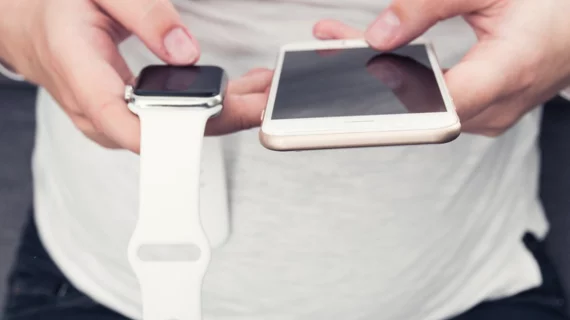Utah man credits smartwatch for saving his life during heart attack
A Bountiful, Utah, man is claiming the heart rate tracker on his smartwatch tipped him off to a serious problem that otherwise could have resulted in his death, Fox 13 in Salt Lake City reported this week.
Michael Glenn, who said owning a smartwatch was never a priority in his life, was on a family camping trip in Wyoming when he experienced what he thought was a chest cold. He wasn’t feeling any pain, he said, but was alarmed when he glanced at his watch—his heart rate clocked in at 40 beats per minute.
“I laid there and just thought, ‘What am I going to do? I’m in the middle of nowhere,’” Glenn told Fox 13.
When he told his wife about the unusual incidence, he said, she rushed him to the nearest hospital, an hour-long drive away. The doctors there told him he’d suffered a major heart attack, with full blockage in his right coronary artery and 80 percent blockage in another artery.
“You hear everyone talk about how thankful they are for life and a second chance,” Glenn said. “I feel like mine just jumped at me.”
Read the full story at the link below:

